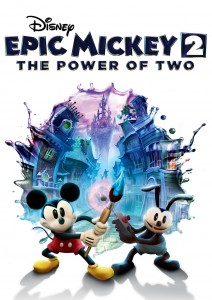Luckily, I had the opportunity to interview the older brother of one of my best friends who works in the video game industry. My questions are labeled with “DD” and his responses are labeled with “TG.”
DD– How long have you been playing video games?
TG– I’ve been playing video games since the late 1980s. I think my first exposure was to my dad’s Colecovision wherein I played games like Donkey Kong Jr., Mousetrap (the hilarious Pacman rip off), and Zaxxon regularly. My first time with PC gaming was in the early 90s on an ancient IBM that had Q-BASIC and Wolfenstein 3D.
DD– How long have you been in the industry? When did you get started?
TG– I entered the industry in 2009. I was hired directly out of graduate school by a (now defunct) company in Texas.
DD– What kind of education do you actually need to work in the industry?
TG– Educational requirements vary by position. In general, a Bachelor’s degree is needed at a minimum. You could potentially get by without one if you’re extremely skilled as an artist or programmer, but those are edge cases. In terms of the types of degrees you should consider if you want to work in the industry, you should tailor them to the type of work you’d see yourself doing. (For instance, an art-oriented individual might go for a Bachelors of Fine Arts or Computer Graphics whereas a programming-minded person would go for Computer Science.) Another good way to see what game companies require in their employees is to visit the Job pages of development studios which interest you.
DD– Where’d you get your degrees from?
TG– I attended UCF [University of Central Florida] for my undergrad and then got my Master’s from the Florida Interactive Entertainment Academy
DD– What studios have you worked for in your time in the industry?
TG– I have worked for TimeGate Studios (now defunct) outside of Houston, Texas, Disney Interactive’s Junction Point Studios (also defunct) in Austin, Texas, and I now work for Io-Interactive in Copenhagen, Denmark. Studios, unfortunately, tend to close quite easily these days.
DD– What’s the biggest game you’ve been apart of?
TG– The biggest title I’ve worked on (that I can discuss) is Epic Mickey 2: The Power of Two while at Junction Point. The studio was headed by Warren Specter, involved Mickey Mouse himself, and had the full weight of Disney behind it. My favorite game to work on was probably Epic Mickey 2. Despite spending the better part of a year working 10 to 16 hour days, there was just some indefinable quality about working with the Disney IPs. (And the benefits weren’t too bad, either.)
DD– To you, what are the best and worst things about working in the video game industry?
TG– Well, I’d say the worst would be the unpredictability of the industry itself. You could be working on a game that has multi-multi-million dollar budget one day, and then find yourself on the street looking for a new job because the game didn’t sell well the next. But the best part is definitely being around the games themselves. People always say “do what you love,” and I can assure you that everyone working in the industry does it because they loves games, because this certainly isn’t the most glamorous industry to work in, it’s hard work, and definitely it doesn’t make you rich over night.
DD– Okay, here’s some more “abstract” type questions: what do you consider “fun?”
TG– This is too subjective to answer, really. Games are a business and that, unfortunately, usually dictates what is considered ‘fun.’ (Hence the reason why you see so many Call of Duty or World of Warcraft clones.) Personally, I consider a ‘fun’ game to be one that is genuinely challenging (such as having smarter AI instead of just increasing an enemy’s total health), competently executed in both thematic and artistic terms (meaning it has its own look, feel, and tone and is a unique product), and is the product of true creative inspiration and love of the craft instead of being a soulless cash-in game trying desperately to follow popular trends in the market.
DD– Okay, I think I understand what you’re saying. If that’s the case, what do you consider to be a “game?”
TG-A game needs to have gameplay; and by that I mean goals, failure states/modes, and interactability. Each of those points can be very subjective, and with the increasing array of devices which are capable of playing games, the definitions are getting much blurrier.
